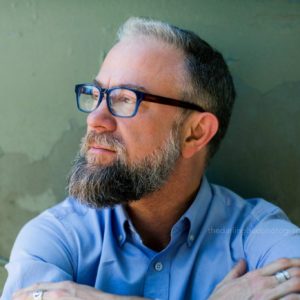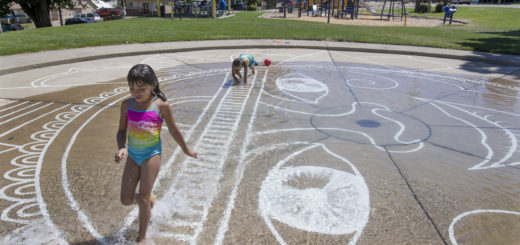Our transgender neighbors deserve to feel a sense of belonging here
I have been trying to educate myself about the issue of gender diversity in hopes of better understanding what life is like for individuals who are born as one gender but who realize that gender assignment doesn’t fit reality.
This issue forces us to confront our assumptions of life as life as binary — either male or female — and consider that gender is more complex and to be viewed on spectrum.

This issue has been played out quite loudly in the realm of politics and religion, but those viewpoints don’t always reflect the impact on human beings. Those who are transgender are from every socioeconomic, political and religious segment.
Earlier this week, I interviewed a remarkable individual, Aidan Key, who started life as a female but transitioned to a male. He’s the founder of Gender Diversity, a nonprofit based in Seattle that is dedicated to fostering constructive conversations in schools and communities about gender issues. He’ll be speaking this week to Wenatchee School District teachers and staff and will also give a public talk Tuesday night at the Mercantile.
Key told me that it’s crucial that we take time to have thoughtful, heartfelt conversations in order to find common ground. Imagine what it’s like to be in one body and yet not feel at home with that gender assignment, Key asked.
“It’s not about politics, it’s not about religious differences it’s about human beings making their way through (life),” he told me.
Key has dedicated his life to helping individuals, families and communities come to grips with gender as a continuum rather than simply male-female and that these are not choices but are deeply felt truths.
Key changed his gender 23 years when he was in his 30s and he describes the kinds of difficulties in navigating family, friends and acquaintances. There was a lot of grief, many tears and much soul searching. “I didn’t feel like I had anywhere to turn,” he said, and his work with Gender Diversity is focused on helping others get answers and find support.
“I’m pretty passionate, again, about helping others find their way through this so that ultimately these children can just live their lives and be children,” said Key.
What Key is adept at doing is looking at these issues from not just the perspective of a transgender person but also from every other viewpoint. Having a child who is questioning his or her gender is not unlike adopting a child of a different race, he pointed out. It is far more difficult for adults to make the adjustments rather than young children who seem to seamlessly accept that Billy is now Mary and wants to be called she/her.
What I really appreciate about Key’s approach is his focus on meeting people, especially kids, where they are rather than insisting that they fit into norms that other people feel strongly about. The need for love and belonging is an essential part of Maslow’s hierarchy of needs and to the extent our community or our society sanctions a mindset that people who are different should be shunned and shamed, we are gravely disserving these individuals.
If we so choose, our first response can be kindness, understanding and support rather than shaming, shunning and judging. I’ll be willing to bet that virtually every educator who has a transgender student does their utmost to create a supportive and caring environment. This is where the rest of us can learn from our teachers.
“There are a lot of misperceptions out there and apprehension,” Key told me. That’s why conversations like those being sponsored this week by the YWCA, Wenatchee PRIDE, Wenatchee School District, Our Valley Our Future and the City of Wenatchee. Key’s organization prides itself on engaging people in a respectful manner, assuming best intent and with a heart-first approach.
The question that Key asks is, “have we spent time thinking that gender is possibly diverse?”
May we thoughtfully engage with this challenging topic and remember that all human beings are worthy of love and respect. May all the kids in our community find a true sense of belonging. May we be kind and bring an open mind to hard conversations.
Here’s a link to the Gender Diversity web site: http://www.genderdiversity.org

